Filter by
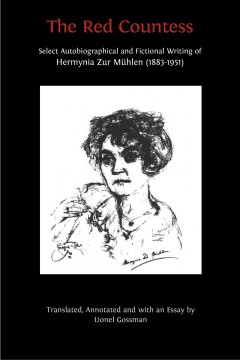
The red countess : select autobiographical and fictional writing of Hermynia …
Born into a distinguished aristocratic family of the old Habsburg Empire, Hermynia Zur Mühlen spent much of her childhood and early youth travelling in Europe and North Africa with her diplomat father. Never comfortable with the traditional roles women were expected to play, she broke as a young adult both with her family and, after five years on his estate in the old Czarist Russia, with her …
- Edition
- -
- ISBN/ISSN
- 9781783745562
- Collation
- 440 p. : ill. ; 24 cm
- Series Title
- -
- Call Number
- 833.912 MUH r
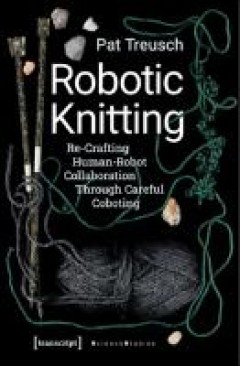
Robotic Knitting : Re-Crafting Human-Robot Collaboration Through Careful Cobo…
As a reaction to typically dead-end debates on future human and robot collaboration that tend to be either dismissive or overly welcoming towards »cobot« technologies, this book provides a technofeminist intervention. Pat Treusch not only shows how both the fields of technofeminism and robotics can engage in a practical exchange through knitting, but also contributes a tangible example of cob…
- Edition
- -
- ISBN/ISSN
- 9783839452035
- Collation
- 166p.
- Series Title
- Science Studies
- Call Number
- 629.8924019 PAT r
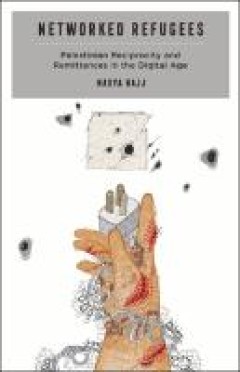
Networked Refugees : Palestinian Reciprocity and Remittances in the Digital Age
A free open access ebook is available upon publication. Learn more at www.luminosoa.org. Almost 68.5 million refugees in the world today live in a protection gap, the chasm between protections stipulated in the Geneva Convention and the abrogation of those responsibilities by states and aid agencies. With dwindling humanitarian aid, how do refugee communities solve collective dilemmas, like rai…
- Edition
- Ed. 1
- ISBN/ISSN
- 9780520383241
- Collation
- 127p.
- Series Title
- -
- Call Number
- 332.04246089927405692 NAD n
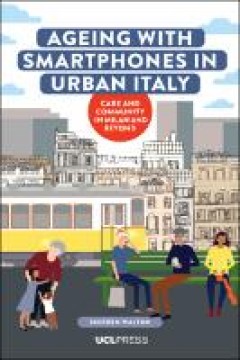
Ageing with Smartphones in Urban Italy : Care and community in Milan and beyond
‘Who am I at this (st)age? Where am I and where should I be, and how and where should I live?’ These questions, which individuals ask themselves throughout their lives, are among the central themes of this book, which presents an anthropological account of the everyday experiences of age and ageing in an inner-city neighbourhood in Milan, and in places and spaces beyond.Ageing with Smartpho…
- Edition
- -
- ISBN/ISSN
- 9781787359710
- Collation
- 188p. ; ill.
- Series Title
- Ageing with Smartphones
- Call Number
- 305.260945211 SHI a
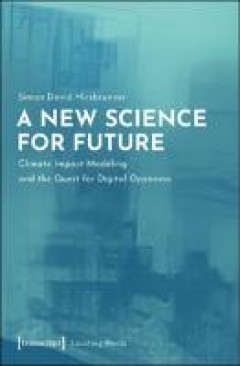
A New Science for Future : Climate Impact Modeling and the Quest for Digital …
Building on concepts from Science & Technology Studies, Simon David Hirsbrunner investigates practices and infrastructures of computer modeling and science communication in climate impact research. The book characterizes how scientists calculate future climate risks in computer models and scenarios, but also how they circulate their insights and make them accessible and comprehensible to others…
- Edition
- -
- ISBN/ISSN
- 9783839452653
- Collation
- 186p. ; ill.
- Series Title
- -
- Call Number
- 551.5 SIM a
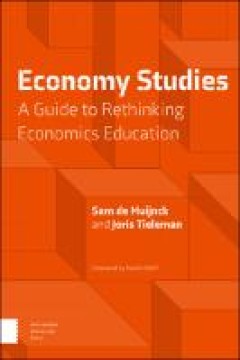
Economy Studies : A Guide to Rethinking Economics Education
"The Economy Studies project emerged from the worldwide movement to modernise economics education, spurred on by the global financial crisis of 2008, the climate crisis, and the COVID-19 pandemic. It envisions a wide variety of economics graduates and specialists, equipped with a broad toolkit, enabling them to collectively understand and help tackle the issues the world faces today. This is a …
- Edition
- -
- ISBN/ISSN
- 9789048552801
- Collation
- 468p. ; ill.
- Series Title
- -
- Call Number
- 330.071 SAM e
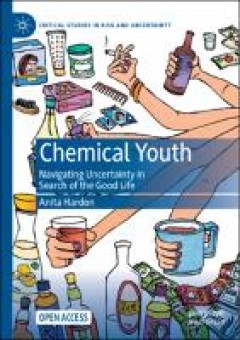
Chemical Youth : Navigating Uncertainty in Search of the Good Life
This open access book explores how young people engage with chemical substances in their everyday lives. It builds upon and supplements a large body of literature on young people’s use of drugs and alcohol to highlight the subjectivities and socialities that chemical use enables across diverse socio-cultural settings, illustrating how young people seek to avoid harm, while harnessing the bene…
- Edition
- -
- ISBN/ISSN
- 9783030570811
- Collation
- 318p. ; ill.
- Series Title
- Critical Studies in Risk and Uncertainty
- Call Number
- 362.29 ANI c
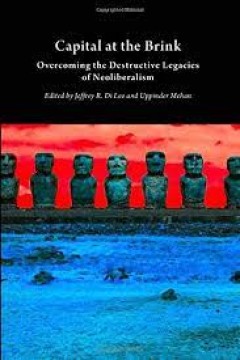
Capital at the brink : overcoming the destructive legacies of neoliberalism
Capital at the Brink reveals the pervasiveness, destructiveness, and dominance of neoliberalism within American society and culture. The contributors to this collection also offer points of resistance to an ideology wherein, to borrow Henry Giroux’s comment, “everything either is for sale or is plundered for profit.” The first step in fighting neoliberalism is to make it visible. By discu…
- Edition
- -
- ISBN/ISSN
- 9781607853060
- Collation
- 277p. ; ill.
- Series Title
- -
- Call Number
- 320.51 JEF c
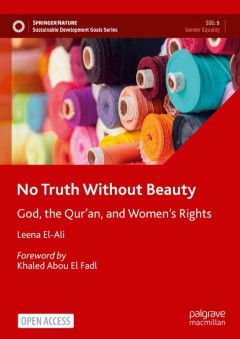
No truth without beauty : god, the Quran, and women's rights
In this comprehensive open access book, written for readers from any or no religious background, Leena El-Ali does something remarkable. Never before has anyone taken on every last claim relating to Islam and women and countered it not just with Qur’anic evidence to the contrary, but with easy-to-use tools available to all. How can a woman’s testimony be worth half of a man’s? How can men…
- Edition
- 4
- ISBN/ISSN
- 9783030835828
- Collation
- xxxii, 306 p.
- Series Title
- -
- Call Number
- 297.082 ELA n
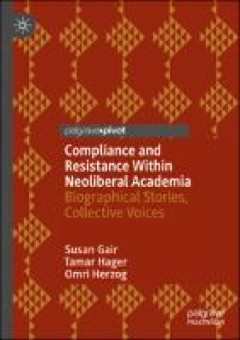
Compliance and resistance within neoliberal academia : biographical stories, …
This open access book reflects on academic life under a neoliberal regime. Through collaborative autoethnographies, the authors share stories about the everyday experiences, dilemmas and conflicts of three academics: the struggle for promotion, teaching’s challenges, the race to publish, confronting bureaucracy and institutional politics, as well as the resulting emotional stress. These stori…
- Edition
- 8
- ISBN/ISSN
- 9783030663186
- Collation
- 134 p.
- Series Title
- -
- Call Number
- 306.43 GAI c
 Computer Science, Information & General Works
Computer Science, Information & General Works  Philosophy & Psychology
Philosophy & Psychology  Religion
Religion  Social Sciences
Social Sciences  Language
Language  Pure Science
Pure Science  Applied Sciences
Applied Sciences  Art & Recreation
Art & Recreation  Literature
Literature  History & Geography
History & Geography